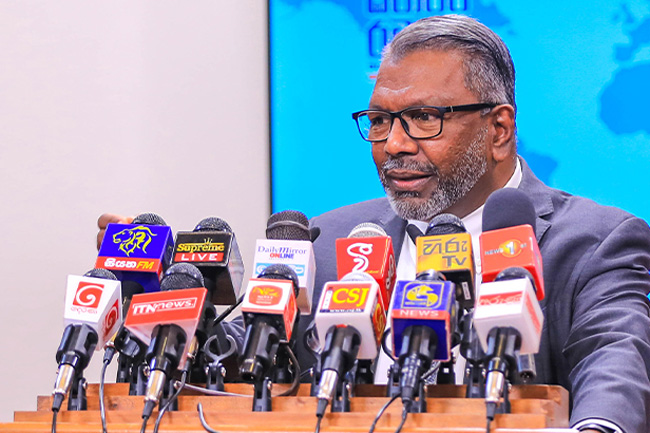Govt to infuse international standards into Sri Lankan universities
The government aims to create a ‘critical Sri Lankan who is a global citizen in a bid to find answers to the modern and futuristic problems, State Minister of Higher Education Dr. Suren Raghavan says.
Internationalization of the country’s higher education is a top priority of the government, the lawmaker said further, addressing a press conference in Colombo on Friday (July 14). The event themed ‘Collective Path to a Stable Country’ had been organized by the Presidential Media Centre (PMC).
He said the government wants to infuse international standards into local universities in order to make them ‘respected’ higher education institutions in the region, if not in the world, at least by 2030.
In addition, the government also mulls promoting the engagement of overseas Sri Lankan academics in the country’s higher education by allowing them to engage in university lecturing in state universities while on vacation or sabbatical as a measure to encourage their involvement in higher education, the state minister added.
“In this method, we are creating a mechanism so that at least ten Diaspora members will engage in teaching in the 17 government universities in Sri Lanka, which will inculcate their professionalism and experience with our government universities.”
Meanwhile discussions are underway with three prominent international universities to open their branches in Sri Lanka, the state minister added.
“Sri Lanka has always poised to be one of the best hubs for education. South Indian market alone; Kerala, Karnataka, Tamil Nadu, Andhra Pradesh and Telangana is going to have 350 million populations by 2030 and their economy is growing. Where will they go to fulfill their educational needs? It is easy for them to come to Colombo than go to Delhi. We need to look at that market.” Dr. Raghavan said.
Further, the government has held non-regulatory discussions with tuition teachers requesting them to provide their set of recommendations and guidelines to regularize the quality of private tuition education and the safety of students attending these classes, according to the state minister.
“The Advanced Level tuition market is 65 billion. Tuition teachers, parents A/L students are all citizens of this country. So this is a citizen-to-citizen understanding they have to do. Why should the government get involved?” the State Minister said.
Dr. Raghavan also emphasized the importance of understanding the 21st century’s human rights and added that it is the responsibility of the state to provide higher education to every student who wants to pursue higher education.
source adaderana

